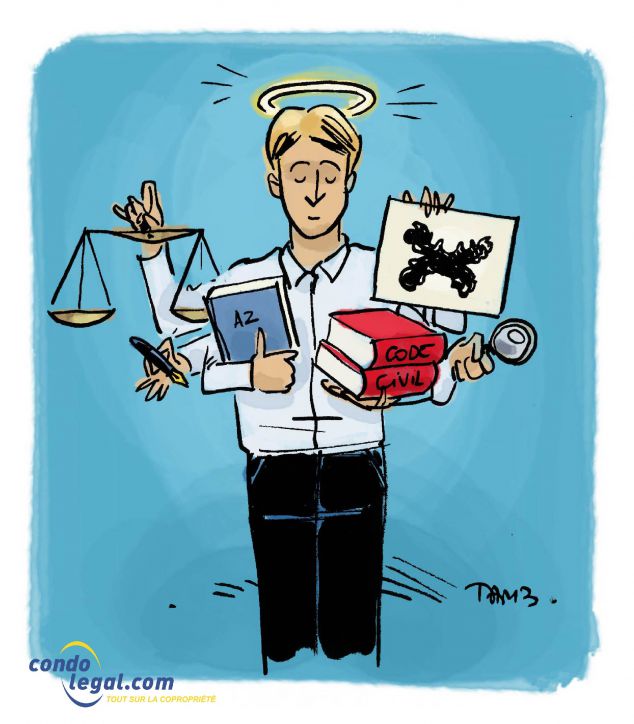
In their dealings with co-owners, board members must act with loyalty and fairness. They must refrain from any gesture that could amount to a settling of scores. This rule of conduct is fundamental and failure to comply with it constitutes a fault that may engage the liability of both the syndicate and the directors, personally. A judgment of the Court of Quebec sanctioned the abusive behaviour of members of the board of directors of a syndicate.
The Facts
The syndicate claimed from two co-owners the lawyers' fees generated by procedures for the recovery of unpaid common charges. To that end, he invoked certain provisions of the declaration of co-ownership, making any co-owner liable for costs thus borne by the community of co-owners.
In their defence, the two co-owners alleged that the syndicate had acted improperly towards them by publishing a notice of exercising a hypothecary right against their property, in order to harass them and make them pay additional costs.
They therefore claimed $3,000.00 from the syndicate for legal fees generated by their defence against the notice of legal hypothec published and with respect to the legal proceedings instituted by the syndicate.
The Decision
The Court concluded that the syndicate, through its directors, had acted in an abusive manner against the co-owners concerned. The declaration, which provides for the obligation of the recalcitrant co-owner to pay legal fees, applies only when someone acts in the reasonable exercise of his rights.
The chair of the board of directors allegedly behaved excessively towards one of the co-owners: on the one hand, she was convicted of assault and on the other hand, her behaviour was condemned by the Human Rights Commission. The Court also noted that "certain actions of the syndicate's officers are characterized by a certain bad faith and vexatious behaviour."
In these circumstances, the Court dismissed the syndicate's claims and allowed the co-owners' counterclaim, thereby ordering the syndicate to pay them the sum of $3,000.00 with interest at the legal rate.
Finally, the Court notes that this sentence would in principle be borne by all the co-owners. To counteract this situation, the Court added that "the syndicate will always be able to take the necessary action against its officers who, according to the evidence in the record, have exceeded the scope of their mandate."
The benefits of the decision
It is easy to recognize, in the basis of this decision, the requirements of article 6 of the Civil Code of Quebec to the effect that the exercise of civil rights must be dictated by good faith, failing which the action for abuse of rights is available.
Article 7 of the Civil Code of Quebec provides that no right may be exercised with the intent of injuring another or in an excessive and unreasonable manner, and therefore contrary to the requirements of good faith.
Members of a board of directors must understand both the scope of their powers and the framework in which they exercise them. In this regard, article 322 of the Civil Code of Quebec provides that " A director shall act with prudence and diligence.". This means exercising its powers reasonably and in good faith, having regard to the facts and the economic stakes. All directors must put aside their feelings of revenge or frustration, while avoiding listening too much to pseudo-councillors or "stage managers", who only want to poison the relationship between co-owners and syndicate.
Yves Joli-Coeur, Ad. E.
Lawyer
Dunton Rainville
3055 Boulevard Saint-Martin O
Bureau 610
Laval, QC H7T 0J3
Tél. : (450) 686-8683
Courriel : [email protected]
Chronic express the personal opinions of the author and in no way engage the responsibility of the site editor , CondoLegal.com Inc. The content and opinions expressed in a column are those of the author.



